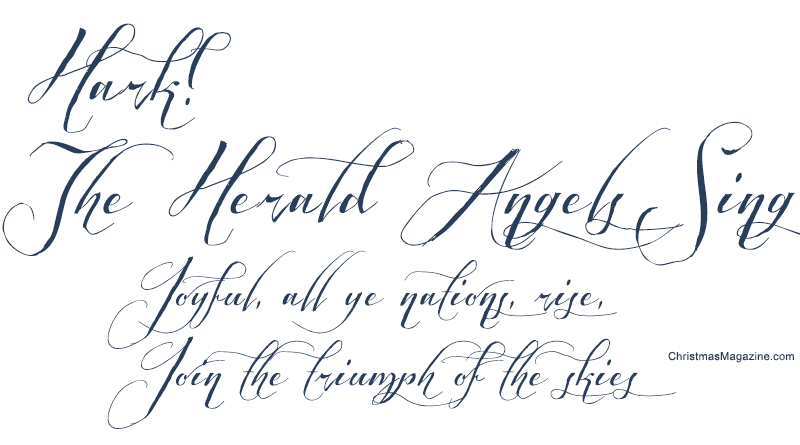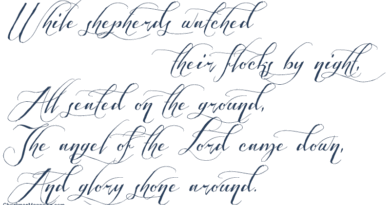Hark! The Herald Angels Sing
Charles Wesley and Felix Mendelssohn
Source: The Christmas Caroler’s Book, 1935
In 1721, a wealthy Irishman offered, to adopt Charles Wesley and make him his legal heir. The thirteen year old boy refused the offer, choosing to continue his way through school under very trying circumstances. This turned out to be one of the most momentous decisions of his life. The boy who was adopted in place of Charles became an earl, and grandfather of the famous Duke of Wellington, while the young Wesley achieved immortal fame through his hymns. He is often called “The Prince of Hymn Writers”.
Charles Wesley and his older brother, John (founder of the Methodist Church) made a brief visit to America in 1735. The two brothers came to Georgia as secretaries to General Oglethorpe. They returned to England the following year. It is said that Charles became interested in hymns on hearing a group of German Moravians singing their hymns aboard ship.
Wesley is said to have written over six thousand hymns and spiritual songs. His two greatest hymns are: Jesus Lover of My Soul (1740) and Hark! The Herald Angels Sing (1739). The latter, in its original form, opened with the lines “Hark how all the welkin rings, Glory to the King of Kings!” Through the course of time, various revisions have been made.
I is a curious fact that the Mendelssohn melody, which is so admirably suited to the song, is an adaptation. In 1840, Felix Mendelssohn composed a cantata to commemorate the invention of printing. This cantata, called Festgesang (Festival Song), was presented at the great festival held at Leipzig. Fifteen years later (1855), Dr. W.H. Cummings, organist at Waltham Abbey, England, adapted the melody of the second chorus Mendelssohn’s cantata to Wesley’s Christmas hymn. He arranged it for his choir and presented it on Christmas day. The new melody was so well received that it was published the following year and soon became the accepted version of the hymn.
Mendelssohn was not completely satisfied with the original words to this melody in the Festgesang. He thought it ought to have other words, but not sacred words. This is verified by a very definite statement which he made in a letter to his publishers in England concerning a possible English translation.
Had Mendelssohn lived to hear his melody sung to the sacred words of Hark! Angels Sing, we wonder if it would not have won his enthusiastic acclaim as it has won the acclaim of millions throughout all Christendom.
Hark! The Herald Angels Sing
Hark! the herald angels sing, –
“Glory to the newborn King!
Peace on earth, and mercy mild,
God and sinners reconciled.”
Joyful, all ye nations, rise,
Join the triumph of the skies;
With th’ angelic host proclaim,
“Christ is born in Bethlehem.”
Hark! the herald angels sing,
“Glory to the newborn King!”
Christ, by highest heav’n adored:
Christ, the everlasting Lord;
Late in time behold him come,
Offspring of the favored one.
Veil’d in flesh, the Godhead see;
Hail, th’incarnate Deity:
Pleased, as man, with men to dwell,
Jesus, our Emmanuel!
Hark! the herald angels sing,
“Glory to the newborn King!”
Hail! the heav’n-born Prince of peace!
Hail! the Son of Righteousness!
Light and life to all he brings,
Risen with healing in his wings
Mild he lays his glory by,
Born that man no more may die:
Born to raise the son of earth,
Born to give them second birth.
Hark! the herald angels sing,
“Glory to the newborn King!”




